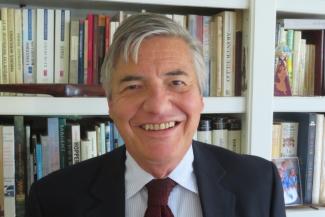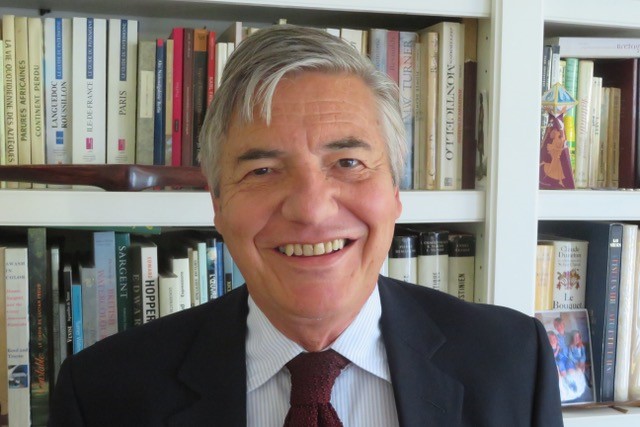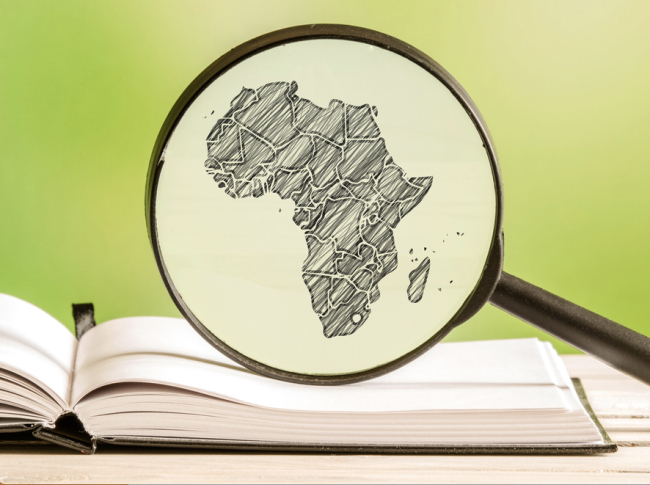Gabon: Has an — Almost — Exemplary Transition Produced a New Political Model?
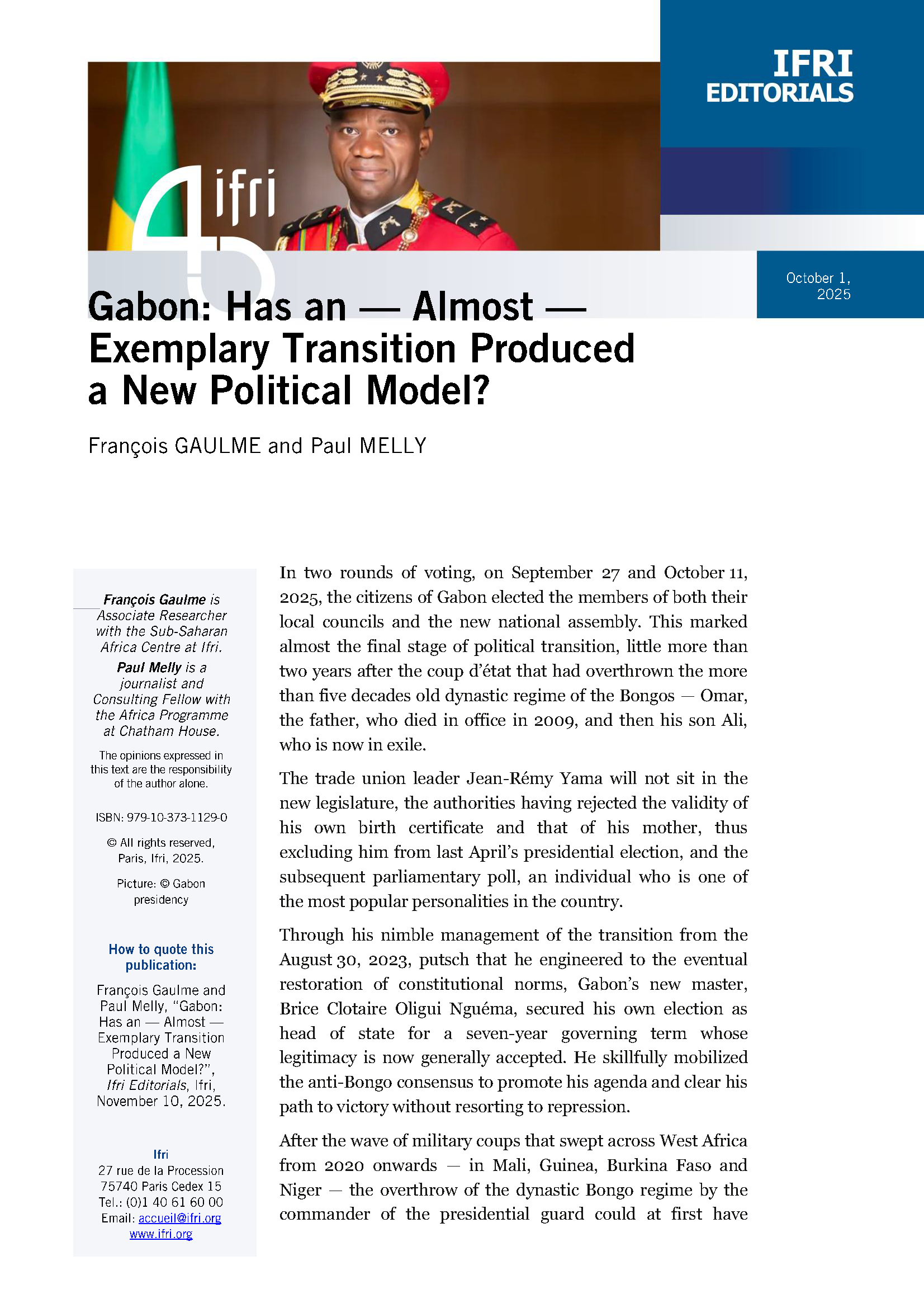
In two rounds of voting, on September 27 and October 11, 2025, the citizens of Gabon elected the members of both their local councils and the new national assembly. This marked almost the final stage of political transition, little more than two years after the coup d’état that had overthrown the more than five decades old dynastic regime of the Bongos — Omar, the father, who died in office in 2009, and then his son Ali, who is now in exile.
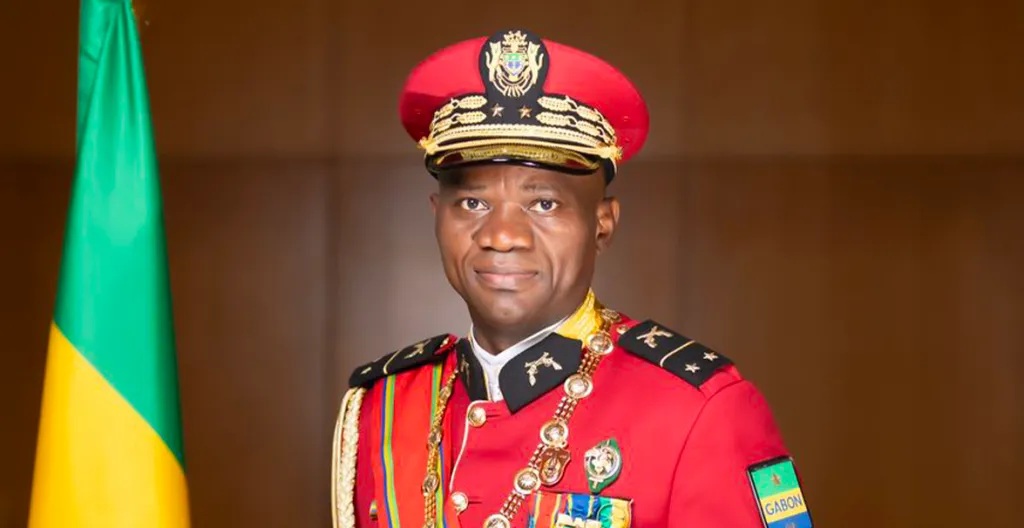
The trade union leader Jean-Rémy Yama will not sit in the new legislature, the authorities having rejected the validity of his own birth certificate and that of his mother, thus excluding him from last April’s presidential election, and the subsequent parliamentary poll, an individual who is one of the most popular personalities in the country.
Through his nimble management of the transition from the August 30, 2023, putsch that he engineered to the eventual restoration of constitutional norms, Gabon’s new master, Brice Clotaire Oligui Nguéma, secured his own election as head of state for a seven-year governing term whose legitimacy is now generally accepted. He skillfully mobilized the anti-Bongo consensus to promote his agenda and clear his path to victory without resorting to repression.
After the wave of military coups that swept across West Africa from 2020 onwards — in Mali, Guinea, Burkina Faso and Niger — the overthrow of the dynastic Bongo regime by the commander of the presidential guard could at first have looked like a central African continuation of the trend, and thus a final warning to an often irresponsible African political class.
But this proved not to be the case: very quickly, Oligui Nguéma differentiated himself from the Sahelian military leaders. Adopting civilian dress, to symbolize his respect for constitutional norms, he went out of his way to reassure both his fellow citizens and regional and international partners that he would restore the rule of law and maintain traditional alliances with Western countries, neither drawing closer to Russia nor asking for the withdrawal of the French, who have been militarily present in Gabon for well over a century.
Prioritizing domestic issues and national unity, Oligui Nguéma presented himself as a unifying figure: during the transition, reaching out to a range of long-standing opponents, to civil society personalities and to some figures who had held high office during Ali Bongo’s presidency. He shrewdly launched a national dialogue to discuss all aspects of a new constitution, yet ensured that he retained the final word. Having drawn up a roadmap for the transition, he accelerated its timeframe to keep one step ahead of other actors and ensure himself an easy victory in the presidential election. With Yama shut out of the race, his only major challenger remained Alain-Claude Bilie-By-Nze (“BBN”), who, as Ali Bongo’s last Prime Minister, inevitably faced heavy defeat.
General Mamady Doumbouya, the leader of the Guinean regime and a former member of France’s Foreign Legion, appears to have noticed the example set by Oligui Nguéma. In contrast to the Sahelian putschists — who have opted to extend their hold on power without elections for at least a further five years — Doumbouya has just organised a referendum to secure popular endorsement of a new constitution that will allow him to become an elected head of state, recognized as legitimate by international partners. However, Guinea’s political history, scarred by long periods of repression and a weak development track record, is very different from the Gabonese context, where the authoritarian past took a much less stark form.
But after his triumph in April’s election, ending the presidential transition, and having consolidated his power, Oligui Nguéma now has to confront challenges that are not only political but also social and economic.
Exploiting his popularity as “the man who overthrew the Bongos”, overseer of the transition and architect of the new Gabon, his supporters founded a political movement which has since been transformed into a party, the Union des bâtisseurs (UDB, Union of Builders).
But its true solidity will only be tested when the moment arrives for difficult choices and unpopular decisions. Threats to social and economic well-being in Gabon have often sparked the emergence of vocal critics — politicians, trade unionists or leaders of the country’s lively civil society — who have found a wide echo among the wider public. Facing intense financial pressures, the new president will be under pressure to respond to the expectations of the majority of voters, but without alienating the relatively privileged governing class, who keep the state machine and formal economy running.
Moreover, news of the government’s decision to release Ali Bongo, his wife Sylvia and son Nourredin — the latter duo facing prosecution — and send them to Angola during the night of 15-16 May this year triggered indignation in Libreville, where public opinion felt this was caving in to African Union pressure to avoid a witch hunt.
This discreet departure, closing the door to any real prospect that Sylvia or Nourredin might appear in court in Libreville, came as a relief to much of the political class. A long trial could have exposed to the harsh light of day the workings of the old regime system, in which many had played significant roles. However, due to significant popular pressure for action on this front, a trial for corruption has now been announced for November 10. Speaking from London, where the family is now based, Sylvia Bongo has already said she will not attend.
In embarking on his new career as a political leader and head of state and government, Oligui Nguéma has a valuable strength: in a country where ethnicity remains a significant influence on political life — the late president Omar Bongo alluded to this obliquely as “géopolitique” — he has the advantage of demonstrable family roots in both the north-west (Nguéma — Fang) and the south-east (Oligui — Obamba), whereas the Bongo era was characterized by the predominance of one province, Haut-Ogooué.
Still, in a Gabon that has become ever more mixed in ethnic and religious terms over the decades of oil-funded prosperity and where the proportion of the population who live in urban areas continues to grow, no ruler can any longer count too heavily on communal loyalties.
Indeed, in this third decade of the 21st century, they are confronted with big economic and social expectations, and particularly in the two main cities, Libreville and Port-Gentil, where the government can no longer guarantee a job for any young graduate, as it could in the Omar Bongo era. Ali Bongo had promised much reform and economic modernization, but the reality, despite some significant progress, fell far short of expectations.
In today’s context, in the Africa of 2025, Gabonese civil society, dominated by a Western-educated urban class and well-connected in the diaspora, particularly in France, will not let itself be easily fobbed off by the government. So the big political imperatives remain: creating jobs for young people, economic growth, social programmes, and reinvigorating agriculture to meet local demand — in a country where the urban population currently relies heavily on imported products.
But Oligui Nguéma may struggle to mobilize the necessary resources. Gabon remains dependent on oil — and its fluctuating global price — at a time when service payments on its public debt, some of which is owed to China, exert growing pressure. According to World Bank projections, public debt will reach 86% of gross domestic product (GDP) in 2027, well above the 70% target set in the convergence criteria of the Central African Economic and Monetary Community (CEMAC), of which it is a member state.
Oil remains a major natural resource, but production levels are below their 1990s peak and further exploration, particularly offshore, will be required if the country is to bolster its confirmed reserves. In October, an exploration agreement was reached with ExxonMobil. However, the prospects depend not only on geology but also on national boundaries. And in this regard, Gabon recently suffered a disappointment, with a May 2025 judgment by the International Court of Justice, deciding in favor of Equatorial Guinea in a territorial dispute over three small uninhabited islands surrounded by offshore waters thought to have significant hydrocarbon potential.
Resource development is also influenced by the state’s approach to regulation and fiscal policy. The Ali Bongo regime started by introducing a petroleum code that proved to be too discouraging for investors and eventually had to revamp it to revive their interest. And of course, the discovery of new hydrocarbon reserves would not relieve the immediate financial pressures on the government.
But nor can it expect too much support from foreign donors. France is a traditional financial partner in the context of the Franc Zone, but under its current development assistance program, it excludes Gabon, as a middle-income country, from the list of grant recipients, restricting its support to loans. In any case, under intense budgetary pressure, Paris is reducing its aid budget, and this could well squeeze the level of funding that it provides to Libreville.
Alongside four other African leaders, Oligui Nguéma was invited to the White House in July to meet Donald Trump, an indication of American interest in Gabon’s natural resources. However, this encounter did not produce any promises of financial support.
In such a discouraging international aid context, Gabon’s president approved fresh borrowing on regional and international markets, including a $520 million Eurobond, to finance infrastructure and public services and clear old repayment obligations. He also agreed to a $1 billion pre-financing arrangement with the Swiss trading firm Gunvor, to allow the state-owned Gabon Oil Company to buy the assets of Assala Energy in July 2024 from the American investment firm Carlyle — a move that chimed with the prevailing sovereigntist mood in Africa today, although it also had a strategic economic rationale.
With oil prices weakening as supply exceeds demand, Gabon risks gradually edging closer to the viable limits of its capacity to finance public expenditure through additional borrowing. Already last year, the International Monetary Fund (IMF) had warned of the risks entailed in the expansionary fiscal policy of the transitional administration.
Meanwhile, in July, the government adopted an ambitious National Plan for Growth and Development 2026-30, largely based around the value-added processing of natural resources, and manganese, a strategic mineral, in particular, before they are exported.
Ali Bongo had already forced the timber sector to pursue this approach. But the speed with which it can be extended to other sectors will largely depend on the development of the necessary infrastructure, and particularly on power generation and distribution. Eramet, a major producer of manganese, has accepted the new policy, but some other investors could prove more reticent.
Gabon’s people expect to finally see tangible improvements in their day-to-day lives. So, having legitimized his presidency through the elections and having begun his new seven-year term amidst great optimism, Brice Clotaire Oligui Nguéma now faces difficult years ahead.
He will need all those political skills that he has so amply demonstrated since August 31, 2023.

Available in:
Themes and regions
ISBN / ISSN
Share
Download the full analysis
This page contains only a summary of our work. If you would like to have access to all the information from our research on the subject, you can download the full version in PDF format.
Gabon: Has an — Almost — Exemplary Transition Produced a New Political Model?
Related centers and programs
Discover our other research centers and programsFind out more
Discover all our analysesClaiming "The People": Youth Booms, Ailing Authoritarians and "Populist" Politics in Kenya, Uganda, and Tanzania
This study analyses the emergence of so-called “populist” political tendencies in three East African countries: Kenya, Uganda and Tanzania. It builds its analysis on a wider discussion of the term “populism”, its use and applicability in (eastern) African settings before going on to examine the drivers of three cases of populism: William Ruto’s 2022 election victory in Kenya and the “Hustler Nation”; Bobi Wine’s opposition to Yoweri Museveni in Uganda; and John Magufuli highly personal style of government in Tanzania.
The Contradictory Impacts of Western Sanctions on Economic Relations between Russia and Sub-Saharan Africa
How does Russia maintain economic ties with Africa despite Western sanctions? An analysis of investments, trade, and the circumvention strategies deployed by Moscow.
The Revenue Sources Sustaining Sudan’s Civil War. Lessons for the year 2023
Wars require money and resources, and often, most conflicts involve controlling sources of income and supply lines or denying them to enemies. This has been the case in Sudan’s past conflicts and is again as the civil war—between the Sudan Armed Forces (SAF), commanded by General Abdelfattah al-Burhan, and the paramilitary Rapid Support Forces (RSF), commanded by General Mohammed Hamdan Daglo “Hemedti” —has sunk into a protracted conflict.
Anglo-Kenyan Relations (1920-2024) : Conflict, Alliance and a Redemptive Arc
This article provides an evidentiary basis for postcolonial policy in its analysis of Anglo-Kenyan relations in a decolonization era.






